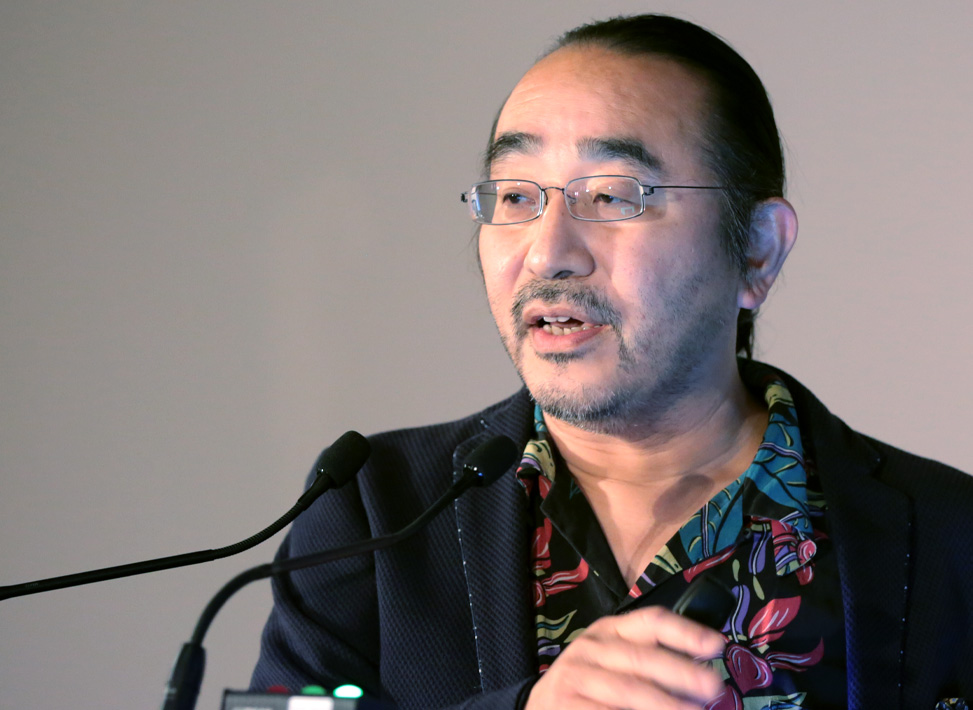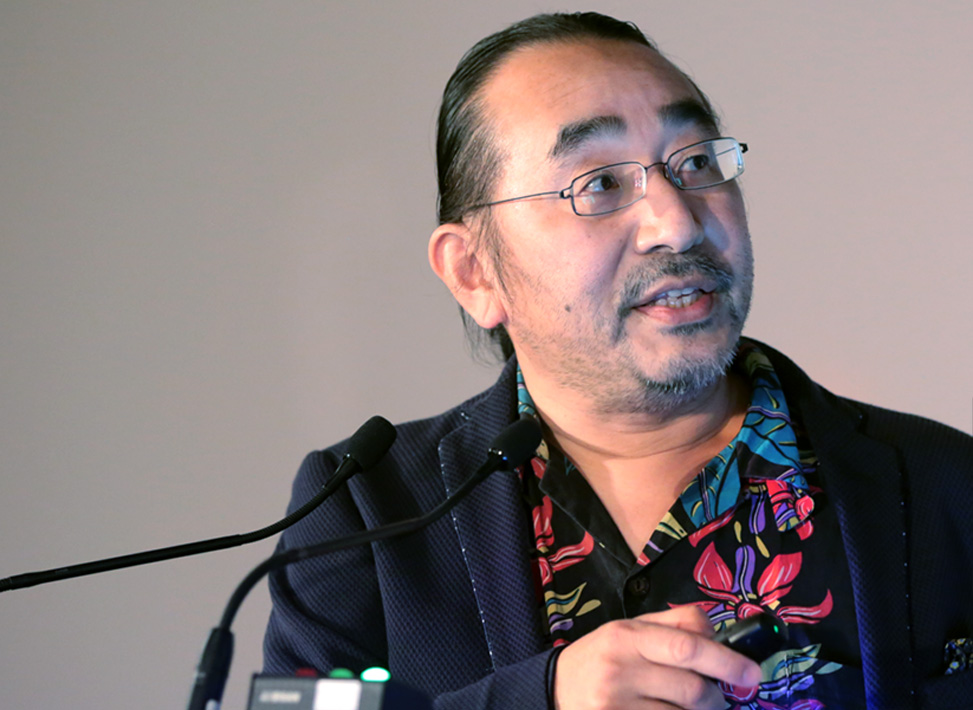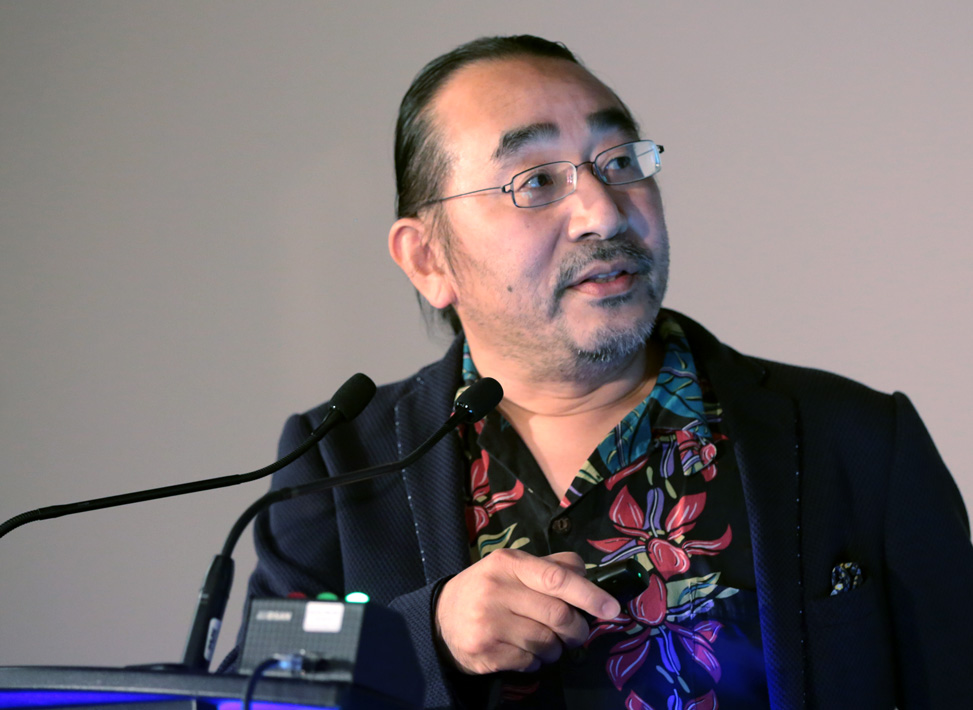Hiroaki Suga
University of Tokyo
Talk Session: SESSION 15: PEPTIDE NATURAL PRODUCTS AND BIOLOGICAL METHODS
Date: Thursday, June 16, 2024
Talk Time: 03:20 pm - 03:45 pm
Talk Title: The Next Generation RaPID System
In the Suga lab, our aim is to utilize organic chemistry techniques in combination with biology to tackle yet unresolved questions. In our inclusive research, we procure scientific knowledge leading to new concepts and develop novel technologies with broad applicability, which can extend to drug discovery. We provide a diligent and cooperative research environment with a goal of nurturing individuals so they are brimming with innovation and global-mindedness
Artificial Ribozymes
Ribozymes are RNAs which have catalytic activity. Since the discovery of ribozymes, the involvement of RNA as a central component in abiogenesis, the RNA world hypothesis, has been supported by many scientists. In the modern world, however, very few natural ribozymes exists and they are limited to RNA modifying reactions such as cleavage and ligation of RNA.
It is possible that over the course of 4 billion years of evolution the catalytic activity of proteins was favored and thus ribozymes with more diverse functions were lost. With that possibly being the case, one of the themes of our lab is to artificially create a ribozyme with novel catalytic activity. A representative example of this is our success with Flexizyme, a ribozyme which can catalyze the aminoacylation of tRNA with a wide range of natural and unnatural amino acids.
Genetic Code Reprogrammings
Genetic code reprogramming is a concept of using translation machinery to synthesize polypeptides with the freedom of incorporating various non-proteinogenic amino acids. By utilizing the aforementioned synthetic ribozyme, Flexizyme, tRNAs can be quickly and effortlessly aminoacylated with non-proteinogenic amino acids.
The establishment of this technology has made it possible to reassign existing codons with desired non-proteinogenic amino acids such as N-methyl and D- amino acids, which have previously been challenging to incorporate. Currently, we are actively pursuing the development of a further improved "next generation" genetic code reprogramming technology.
Ribosomal Synthesis of Nonstandard Peptides
Peptides isolated as natural products are frequently found to contain non-proteinogenic amino acids as well as bearing a macrocyclic structure and are referred to as "nonstandard peptides." Such nonstandard peptides generally have a high in vivo stability in addition to bioactivity and are very desirable pharmaceuticals.
Until recently, the discovery of such pharmaceutical nonstandard peptides has been by chance and an efficient method of discovery has not been established due to limited availabilities of nonstandard peptide. However, by virtue of the aforementioned genetic code reprogramming technology, it is now possible to freely design and create nonstandard peptides. At present, we are concentrating our efforts into developing a system to make possible the ribosomal synthesis of nonstandard peptides with added complexity and pharmaceutical applicability.
Nonstandard Peptide Probes
The nonstandard peptide translation system introduced here has made possible the construction of nonstandard peptide libraries, which we have combined with in vitro mRNA display. The combination of the two technologies culminated to our exclusive in vitro selection system, which we refer to as the RaPID, Random nonstandard Peptide Integrated Discovery, system.
Currently, we apply our RaPID system toward drug development projects with the intention of isolating nonstandard peptides against various pharmaceutical targets. In the near future, by establishing this system as a fundamental technology of next generation drug discovery as well as being the first nonstandard peptide drug discovery institution to originate from Japan, we aim to deliver many achievements to benefit society.
Macrocyclic peptides possess a number of pharmacological characteristics distinct from other well-established therapeutic molecular classes, resulting in a versatile drug modality with a unique profile of advantages. Macrocyclic peptides are accessible by not only chemical synthesis but also ribosomal synthesis. Particularly, recent inventions of the genetic code reprogramming integrated with an in vitro display format, referred to as RaPID, Random non-standard Peptides Integrated Discovery, system, have enabled us to screen mass libraries, >1 trillion members, of non-standard peptides containing multiple non-proteinogenic amino acids, giving unique properties of peptides distinct from conventional peptides, for example, greater proteolytic stability, higher affinity, low nM to sub nM dissociation constants similar to antibodies, and superior pharmacokinetics.
The field is rapidly growing evidenced by increasing interests from industrial sectors, including small start-ups as well as mega-pharmas, toward drug development efforts on macrocyclic peptides, which has led to several de novo discovered peptides entering clinical trials.
This lecture discusses the advanced RaPID system, and several showcases of therapeutic potentials of macrocyclic peptides. We will also discusses the next generation of RaPID system involving the display of pseudo-natural products generated by thiopeptide post-translationally modifying enzymes.







